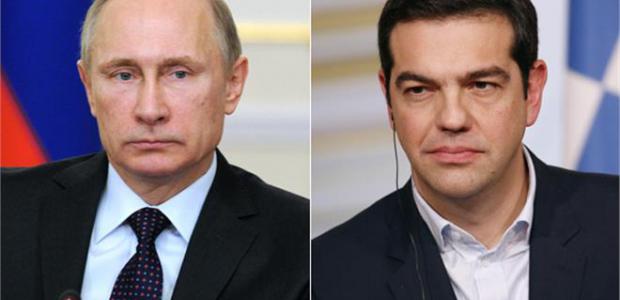Today’s official visit to Moscow by Prime Minister Alexis Tsipras launches a tricky balancing act in which the Greek leader will need to strike an equilibrium between strategically broadening the country’s horizons, financially and in the energy sector, and not prompting side effects in its relations with fellow EU partners.
It will be a difficult task as the attempt entails the risk of transforming the perception of Greece as a geopolitical danger, instead of bolstering the country’s negotiating strength with creditors.
The agenda at today’s meeting between Russian president Vladimir Putin and Tsipras may be all-encompassing, covering all major issues, from the prospect of a bilateral loan agreement for Greece, a reduction of Russian natural gas supply prices, Russia’s lifting of an agricultural products embargo, Russian investments in Greek ports, Trainose, the railway company, and DEPA, the Public Gas Coorporation – all in exchange for Greece’s support of Russia’s latest natural gas pipeline plan to bypass Ukraine and reach the Greek-Turkish border area for supply to the EU.
Russia hopes to begin transmitting 47 billion cubic meters of natural gas, annually, to central Europe through this pipeline. It is considered certain that Putin will seek Greek involvement in the infrastructure project.
Efforts made by Greece in recent years to upgrade the country’s role in supporting Russian supply of oil and gas to Europe have not been embraced by the EU and US, striving to limit Europe’s energy dependence on Moscow. However, regardless of various ongoing maneuverings, officials in Brussels know well that the EU heavily relies on Russian natural gas. If a solution is not found to Russia’s conflict with Ukraine, then the EU will need to find an alternative pipeline supply solution for the 63 billion cubic meters of natural gas it consumes via Ukraine. At present, no other supplier can offer such amounts. Nor do alternative pipelines of such capacity exist.
If the conflict with Ukraine is sustained, Russia will place at risk its gas supply prospects with the EU, the biggest recipient of Russian natural gas. EU consumption of Russian natural gas via Ukraine is worth 20 billion dollars, annually. This explains why Russia is promoting the prospect of Turkish Stream, to avoid Ukraine, a major supply-route problem for Russia. It should be noted, however, that should Russia and Ukraine resolve their differences, the new Russian pipeline plan will no longer be necessary, and, politically, will leave Greece out in the dark.





